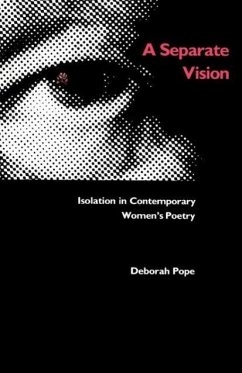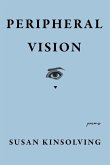The emergence of large numbers of women writers expressing a deliberately female consciousness has marked one of the significant directions of literature in this century. A central idea embraced by these writers has been the particular isolation, or marginality, flet by women. In A Separate Vision Deborah Pope focuses on four representative poets - Louise Bogan, Maxine Kumin, Denise Levertov, and Adrienne Rich - to explore the ways in which women writers' treatment of isolation extends our perception of women's experience and our understanding of the alienated human sensibility. In the work of these poets, Pope identifies four distinct phases of isolation, split-self, and validation. These phases represent a progression from negation to affirmation, from a sense of powerlessness and severe restriction to one of literal and psychological freedom. She shows how the dynamics of this progression have operated in each poet's development, with each starting from the negative stance of victimization and moving, in varying degrees, toward validation. But Pope also finds that in each woman's work one phase of isolation is predominant. She sees the tension and confessionalism in the poetry of Bogan, the earliest of the four, as most representative of victimization. Kumin's poems on her alienation from familial and social experiences exemplify personalization. The split-self is manifested most clearly in Levertov, whose work shows a woman torn between her social female self and her inner artistic self. Rich, the most committed feminist of this group, si also the strongest exemplar of validation. Her recent poems are charged with personality and power, and the isolation in her writing is the isolation of those in the forefront of exploration and change. This progress toward a positive sense of women's isolation is a significant movement in contemporary poetry. With what Pope describes as their "vigorous revisioning of our patterns of human experience," women poets are today showing us new ways of understanding and realizing human dignity and worth.
Hinweis: Dieser Artikel kann nur an eine deutsche Lieferadresse ausgeliefert werden.
Hinweis: Dieser Artikel kann nur an eine deutsche Lieferadresse ausgeliefert werden.








